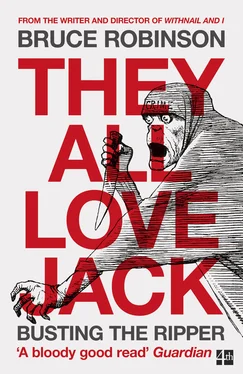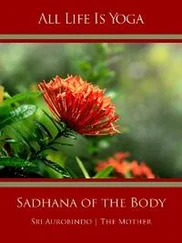I’ve read extensively about this ‘hole’, but details of its myth needn’t trouble us here. I raise it merely to point out that if Victorian educators wanted a hole to get uptight about, they could have had as many as would satisfy their indignation without the inconvenience of sending an army to India. A penny ride on a London omnibus would have taken them to Aldgate (Jack’s nearest and frequently used underground station), east of which were thousands of black holes more permanently frightful than anything in Bengal.
Here, the sub-British ate, slept and wiped their arses in cellars full of vermin and promiscuous death. It was a state of affairs nobody in government got into a particular tizz about, making one wonder if the outrage over sanitary conditions in Calcutta wasn’t something of a theatrical overreaction to get at something else.
In 1877 Victoria became Empress of India, but not of London’s East End. There was no money in it. Thus the Victorians managed to persuade themselves that this suburb of hell was nothing to do with them, and that poverty was somehow engendered by evil. Poverty was portrayed as a lack of morality, rather than a byproduct of greed. These bastards were conniving, thieving, degenerate, congenital criminals, born sinners, and if they’d only stop fucking each other, cherry blossom would sprout spontaneously up the Mile End Road.
One West End Nazi offered businesslike solutions to deal with the maggot-coloured infants sullying London’s streets. The following is from an elegantly produced little guidebook for tourists published by the Grosvenor Press in the 1880s, at the height of Victoria’s reign.
Observe the East End streets, and you will notice hundreds, and thousands of little children wandering about in mobs. Their food is scant and they come ten in a family. Like the wretched Hindus, whom a famine, that is really well deserved , has overtaken, and who supinely breed up to the last pound of rice, these Hindus of the East End take no thought for the morrow, and bring into existence swarms of children for a life of barbarism, brutality, and want in the midst of plenty. Yet our civilisation prates at the sanctity of this human life, and in the same breath speaks of the mercifulness of putting a horse with a broken leg ‘out of its misery’.7
In other words, kill them. Was the writer of the above mentally ill, or simply inured to the cruelties of his time? His words are quoted verbatim (only the emphasis is mine), but they give a kind of perspective. Of course there were giants of the philanthropic trades who fought against such ‘values’. But this book isn’t about the genius of Victorian England. It’s about the bad guys, and even the bad side of the good guys.
The nineteenth century was on its famous roll, and the name of the game was gain. Glittering times for those at the top, not so cosy for those pushing the juggernaut. A confederacy of enterprising Englishmen fought their way up – heroes and cowards, saints and shysters – dragging buckets for the gold. ‘I would annex the planets if I could,’ said Cecil Rhodes, staring up at Africa’s stars. On a more prosaic level, the common herd were required to stand behind cordons of policemen and wave little flags at the passing millionaires.
From time to time they were also required to shell out. Somehow the Victorian elite had managed to amend the mythological affection the peasants had for Robin Hood. It will be remembered that he robbed the rich and gave to the poor. The richest family on earth had turned that on its head. In advance of a Royal Wedding – ‘the Fairest Scene in all Creation’ – the nuptials of the Queen’s grandson George, Duke of York, the mob were instructed to buy the bride a present.
Dockyard labourers, longshoremen, river boat men, village peasants, mechanics, miners, parish school children, cottagers, weavers, carpenters, bricklayers – the whole, in a word, of the poorest and hardest worked members of the nation – were bidden, in terms which admitted no denial, to give up a day’s wage or the price of a week’s meals to assist in purchasing some necklace, bracelet, or other jewel for a young lady who is to be the future wearer of the crown jewels of Great Britain. Royalty in England makes a nation of snobs and sycophants out of a nation that otherwise would be sturdy and self-respecting.8
Not from my pen, but from that of a brilliant, now neglected writer of the time, ‘Ouida’ (Marie Louise de la Ramée), who couldn’t be dismissed as a horrid Continental republican, because she was British. She continues, under the subheading ‘Physical Defects of the Royal Breed’:
Given their consanguinity in marriage, their hereditary nervous maladies, their imprisonment in a narrow circle, their illimitable opportunity of self-indulgence, the monotony, the acquisitiveness, which lie like curses on their lives, we must give them the honor that they remain as entirely sane as some of them do. They are, moreover, heavily and cruelly handicapped by the alliances which they are compelled to form, and the hereditary diseases which they are thus forced to receive and transmit. The fatal corporeal and mental injuries of the royal families due to what the raisers of horses call ‘breeding in and in’ cannot be overrated, and yet seem scarcely to attract any attention from the nations over which they reign. Mental and physical diseases are common to them, and so are certain attitudes, moral and political. They are almost all great feeders, and tenacious of arbitrary precedence and distinction. No one ever tells them the truth, they are surrounded by persons who all desire to please, that they may profit by them.9
Needless to say, this piece was never published in England, but in the American edition of Review of Reviews . If I were obliged to agree with only one phrase of it, it would be the last: ‘that they may profit from them’.
Victorian royalty was a gigantic conjuring trick, pomp and pretty circumstance designed to keep your eye off the ball: precisely the reason conjurors use a blonde with big tits. The trick was mother love (and love of mother). Victoria loved her people, and 310 million people loved her.
But this proposition sweats a bit under analysis. Her family feared her. Half the world feared her armies and her avarice – young men flocking to heaven in a brainwashed patriotic stupor at the bugle-call of her greed.
‘We must with our Indian Empire and large Colonies,’ wrote the Queen, ‘be prepared for attacks and wars somewhere or other CONTINUALLY.’ Her emphasis, but not her blood.10
By 1887 Victoria had been queen for fifty years. At her Jubilee celebrations she wept joyously at the battalions of young soldiers, but got a bit fraught when asked to contribute to the cost of the festivities. Marching feet might bring a sting of imperial hubris, but underlying it was the sentiment of a clapped-out cash register. It was made clear to ministers that if she had to pay, she’d never celebrate again.
She didn’t want to pay for her swarm, either. Victoria had twenty-two grandchildren, and by the time of her death, thirty-seven great-grandchildren.11 That’s fifty-nine junior royals with their hands in the till. By the late 1880s this regal cavalcade of indulgence at public expense was stretching political and fiscal credibility to breaking point. It had become too much even for the Conservatives. In an attempt to navigate cross-party dissent, the government quietly suggested that the Palace might want to police its own finances. Nothing radical, you understand: Fat Ed would still get his £128k a year; but could not the Queen herself see a way to appoint a committee that might, very delicately, ‘recommend economies, which, without interfering with your Majesty’s personal comfort, state, or dignity, [the loyal throat was cleared] might be made available as a fund out of which provision could be made either wholly or in part for the young members of the Royal Family?’12
Читать дальше











